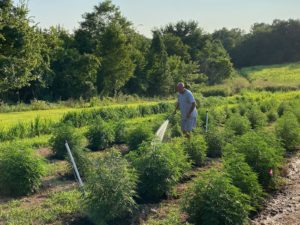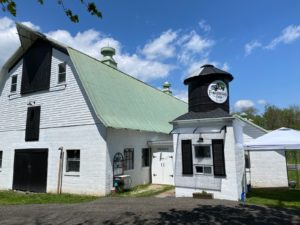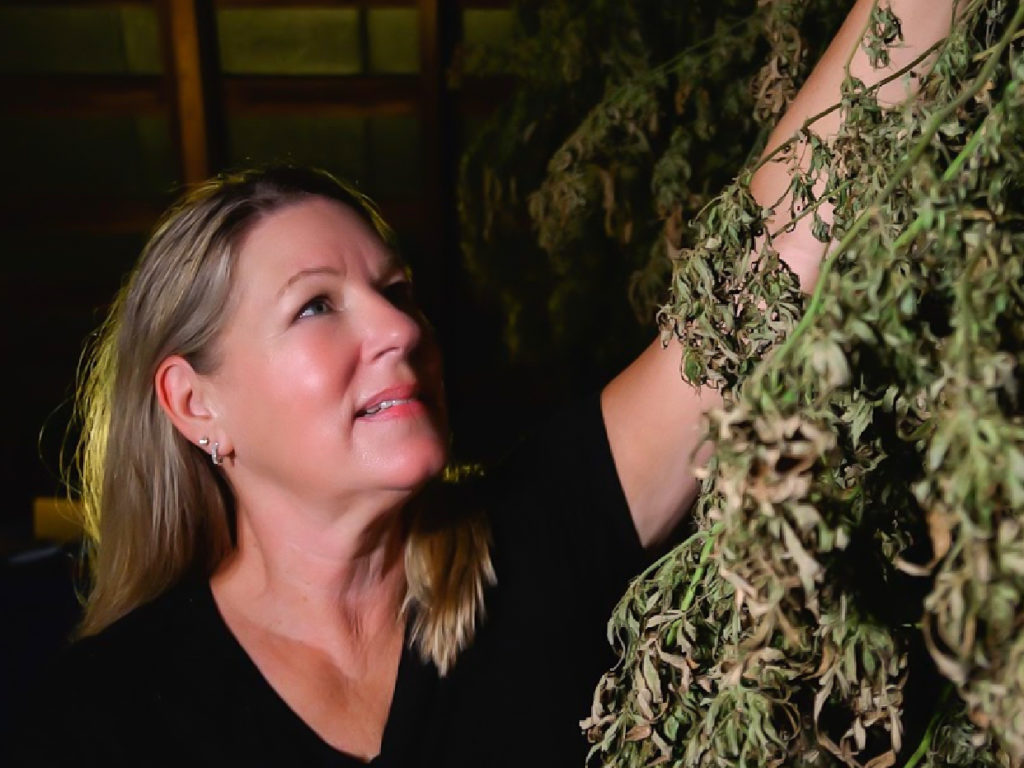After a few weeks on antibiotics to treat a tick bite she received in 2002, Dawn Gordon assumed she would be fine. But by 2007, her Lyme disease symptoms were at times so debilitating that she was bed-bound, and eventually had to abandon her 35-year career in commercial real estate.
Gordon, 59, sought a new job that allowed her to work largely from home, and afforded her plenty of time to rest and heal. In 2016, she became the proprietor of the Fingerboard Country Inn, which sits on a 25-acre farm in Frederick County, Maryland. She had no background in farming, but enjoyed the pace and energy of running the inn on the sprawling property.
Things soon shifted for her health too, when she was introduced to what she now calls a “miracle plant” – hemp. Gordon’s doctor gave her some samples from Charlotte’s Web, a popular brand of hemp-derived CBD products purported to have anti-inflammatory and other natural healing properties. Gordon didn’t know anything about CBD at the time, but she was desperate to try anything that might bring some relief.
“I really didn’t feel any different the first day, second day, third day,” she said. “But I was religious about taking it, and by maybe the fourth day, I started seeing the inflammation had gone down in my joints.”

Partly due to a lack of research, there’s still only limited evidence showing CBD can effectively treat the many conditions it’s purported to cure.
But Gordon said she noticed her chronic pain had eased, she was feeling less anxious and was even sleeping better. She quickly became a vocal advocate for CBD on social media forums, touting its benefits to others dealing with Lyme disease. She even began to consider developing her own line of CBD products to help her peers in the Lyme community.
The Maryland General Assembly passed a bill in 2018 establishing a pilot program for growing industrial hemp in the state. It was the perfect opportunity for Gordon to turn her burgeoning passion into a new career.
“I had the farm already, had a great space to grow the hemp. I was feeling better and had become so passionate about CBD products,” Gordon said. “I decided to dive in deep.”
She worked with researchers at Morgan State University (all pilot participants were required to partner with a research institution), and endeavored to learn everything there was to know about running a hemp and CBD business from seed to sale. With the help of a $117,000 unsecured loan, plenty of Google searches and YouTube tutorials, and some advice from a horticulturalist friend, Gordon stood up her cultivation operation.
Today, Fingerboard Farm is going on its fourth year in business.
The farm counts more than 1,200 hemp plants, using an onsite extraction and formulation operation to produce an array of branded CBD products that are sold online and at several regional retailers, including five Maryland medical cannabis dispensaries.

In April, the Maryland-native hosted a grand opening for a physical store at the farm, which she said allows her to meet face-to-face with customers, teach them about the hemp industry and cultivation process, and advise on what CBD products would best fit their needs.
She already has plans to expand the business, starting with a larger extraction and formulation lab she plans to build in an old dairy barn on the farm. She also hopes to apply for an adult-use cannabis cultivation license as soon as that market is fully legalized and operational in Maryland.
In November, Marylanders will get to vote on recreational cannabis legalization after the General Assembly approved a ballot referendum on the matter earlier this month. The referendum is expected to pass, with polls indicating a majority of state voters from both sides of the political aisle support legalization.
Gordon said while she loves CBD and believes in its benefits alone, she will be able to serve more people by offering products with a higher THC content.
Although the health issues she faced over the years brought plenty of unexpected challenges, she said they also led her to her true calling.
“I’m really blessed to have been able to find this new career, and to do something that I love every day,” she said. “I can’t cure anybody – I wish I could – but I know I can help make them feel better and that’s why I’m doing this.”

